
How to Choose the Right Construction Company in Pakistan (2025 Guide)
May 2, 2025
Buy or Build a House? Pros, Cons & What’s Best for You (Pakistan 2025 Guide)
May 5, 2025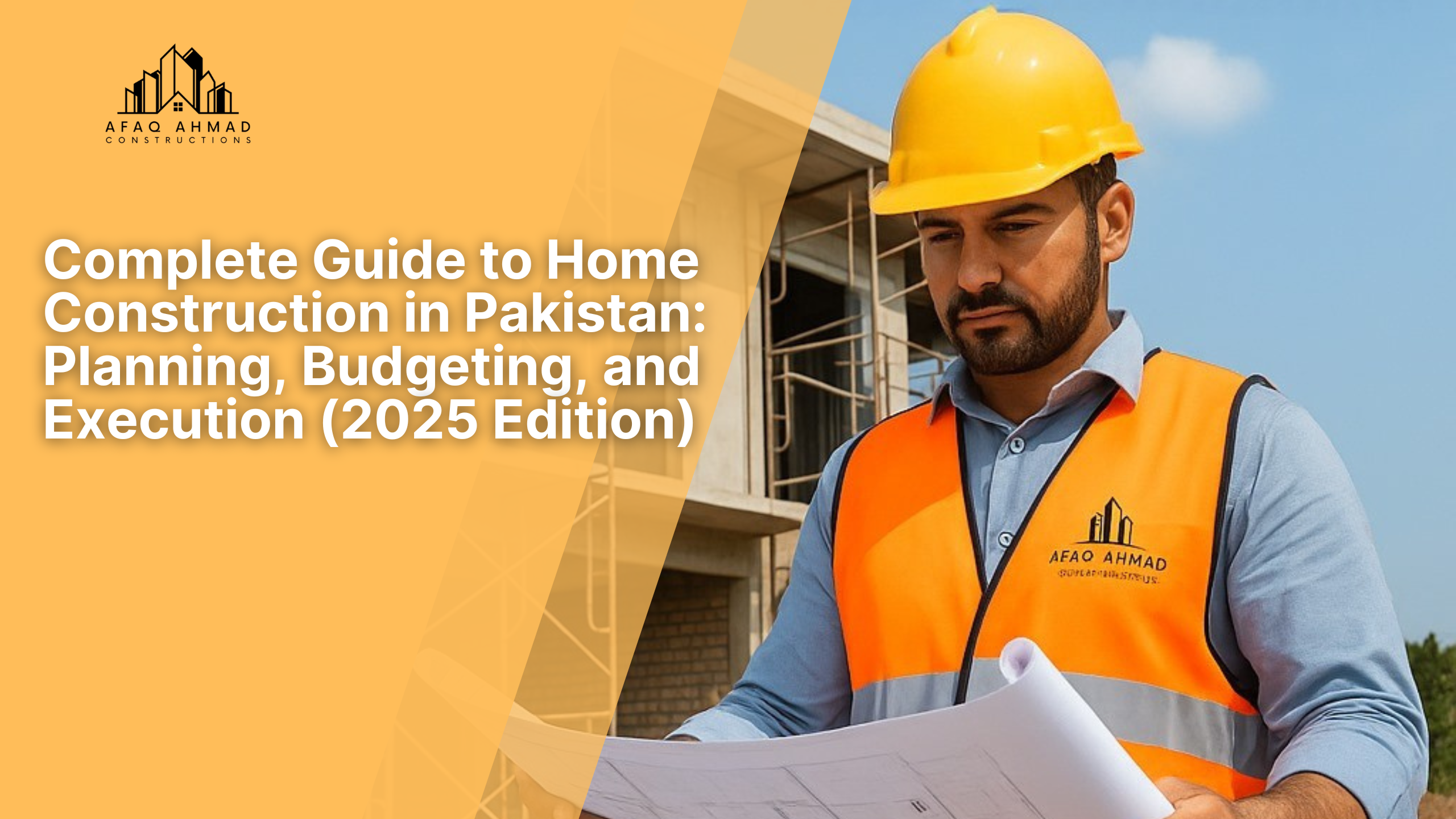
Introduction:
Building a home is one of the most important financial and emotional investments a person can make. In Pakistan, where construction costs and material availability are constantly evolving, the process can be overwhelming without the right knowledge. This comprehensive guide is designed to walk you through the essential steps of home construction in Pakistan in 2025—from planning and budgeting to choosing the right materials and completing the build with quality assurance.
Understanding the Construction Process in Pakistan:
Home construction in Pakistan typically involves multiple stages, including site preparation, foundation, grey structure, and finishing. Each of these phases comes with unique costs, timelines, and requirements. Understanding these steps ahead of time helps homeowners prepare mentally and financially.
Pre-Construction Planning and Approvals:
Before any physical work begins, the planning phase is critical. This includes:
- Site selection and soil testing to ensure ground stability.
- Architectural planning—designing the layout with the help of architects or using approved maps.
- Approval from local development authorities such as CDA, LDA, or DHA.
- Utility connections for water, gas, and electricity.
Getting these permits and plans in place helps avoid legal issues and unexpected delays.
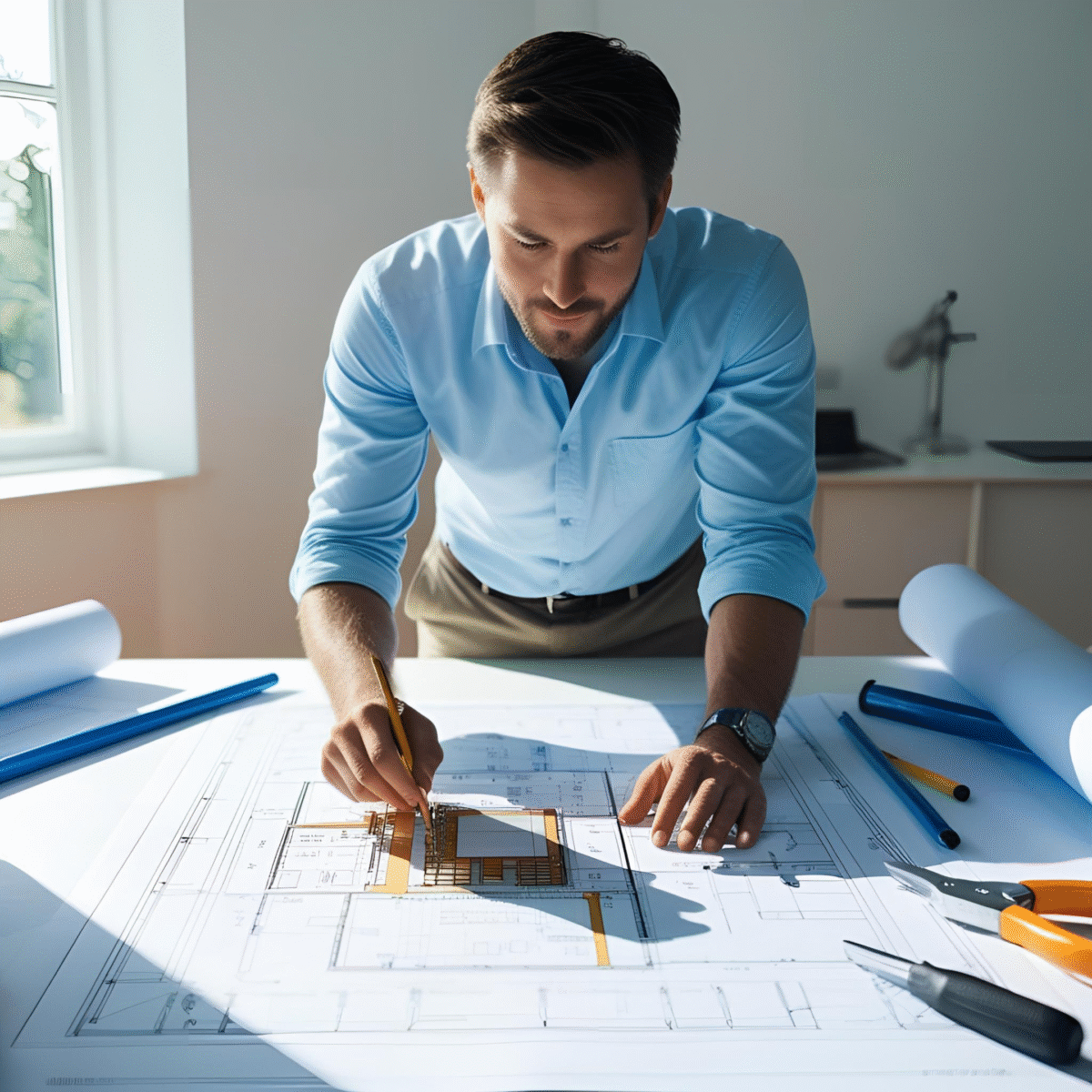
Estimating the Construction Budget:
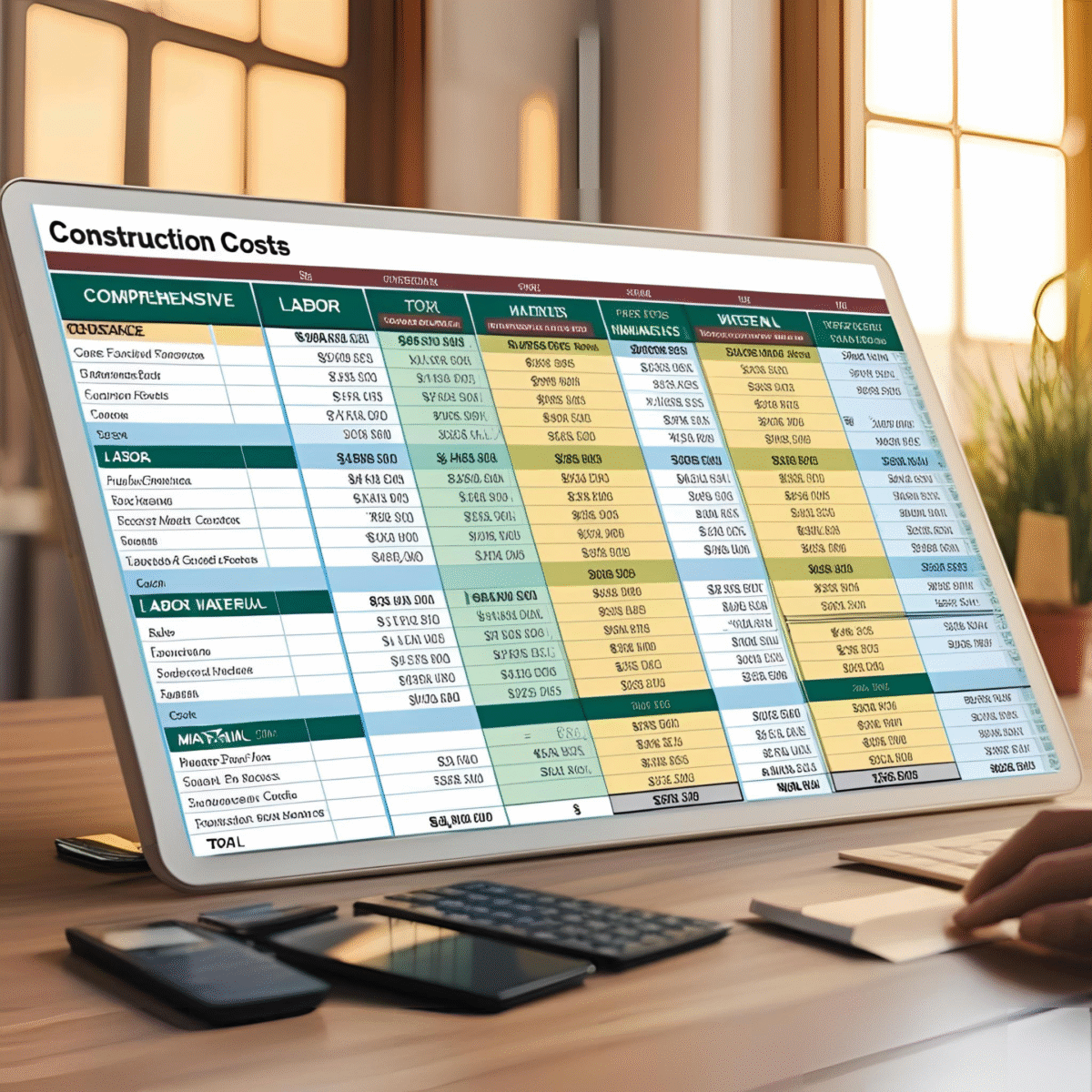
Budgeting is the foundation of a successful project. In 2025, the average construction cost for a 5-marla house in Pakistan ranges from PKR 5,500 to PKR 6,500 per square foot for complete construction (grey + finishing).
You should estimate costs under the following heads:
- Land and legal fees
- Grey structure construction
- Finishing materials and labor
- Utility connections and contingency fund
Using an online construction cost calculator or consulting a construction company can help provide an accurate estimate.
Do read our this blog Top 10 Cost-Saving Tips for Home Construction in Pakistan (2025)
Choosing a Construction Contractor:
Selecting the right construction company or contractor ensures that your project is executed professionally. Here’s what to consider:
- Registered companies with a good portfolio
- Transparent pricing and clear agreements
- Provision of site supervision
- Use of quality materials
Make sure you sign a legal contract agreement that defines scope, timeline, cost, and penalties for delays.
Construction Materials in 2025:
Due to inflation and market fluctuation, the cost and quality of materials in Pakistan keep changing. Make sure your contractor uses reliable brands and grades for materials such as:
- Cement: DG Khan, Lucky, Maple Leaf
- Bricks and blocks: A-grade first-class bricks or concrete blocks
- Steel: Grade 60 for reinforcement
- Crush and sand: Clean and washed river sand and Margalla crush
Material inspection and receipts must be verified regularly to ensure quality.
Grey Structure Phase:
This phase involves the basic skeleton of your home, including foundation, walls, columns, roofing, and boundary walls.
Activities include:
- Earth excavation and PCC (Plain Cement Concrete)
- Reinforced concrete work (beams, columns, slab)
- Brickwork and plastering
- Electrical and plumbing pipelines
A strong grey structure is the backbone of your building and should never be compromised on materials or workmanship.
Finishing Phase:
After the grey structure is complete, the finishing stage adds the aesthetic and functional appeal to your home.
Components include:
- Floor and wall tiling
- False ceilings and paint
- Woodwork (doors, wardrobes, kitchen cabinets)
- Bathroom fittings and fixtures
- Electrical switches, lights, and fans
This phase usually takes longer and can be more expensive than the grey structure depending on your choice of materials and design.
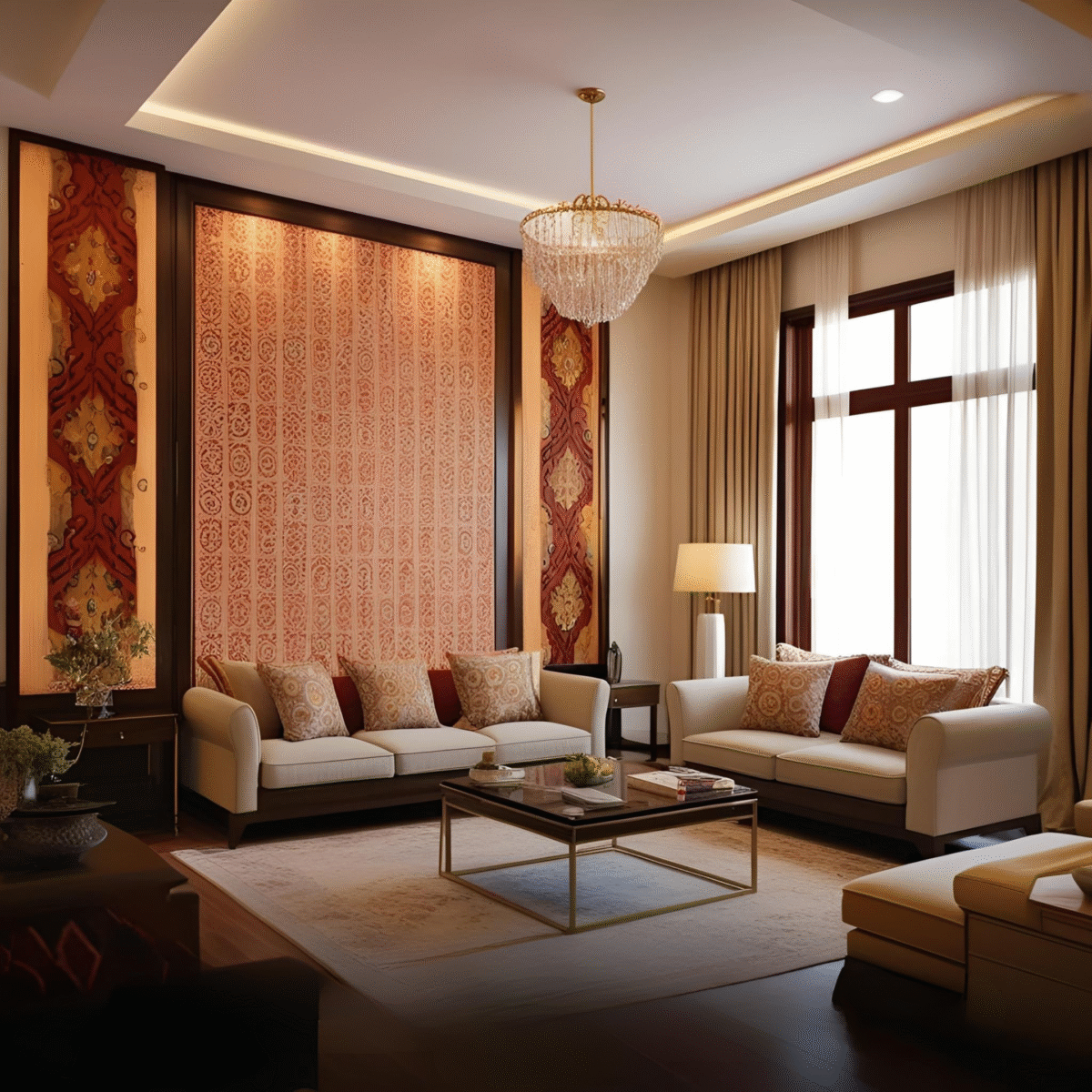
Quality Control and Site Supervision:
To ensure long-term durability and safety, regular quality checks should be done at every construction phase. Here’s what to monitor:
- Alignment and levels of construction
- Curing of concrete and plaster
- Waterproofing of bathrooms and rooftop
- Proper installation of plumbing and wiring
Hiring a qualified site supervisor or engineer for periodic inspection helps catch problems early and maintain accountability.
Legal and Municipal Compliance:
Compliance with government building codes is crucial. Failing to meet requirements can result in heavy fines or demolition notices.
- Ensure proper property registration
- Follow building by-laws set by local authorities
- Get completion and occupancy certificates
- Pay applicable property taxes and utility fees
Working with registered professionals and engineers helps you stay compliant.
Also, verify whether the firm has construction insurance, especially for large-scale projects. http://Pakistan Engineering Council (PEC)
Construction Timeline Expectations:
The total construction time for a 5-marla house in Pakistan typically ranges from 6 to 10 months, depending on labor availability, weather, and design complexity.
Typical breakdown:
- Grey structure: 3–4 months
- Finishing: 3–6 months
Having a project timeline in your contract keeps everyone accountable and reduces delays.
Tips for First-Time Homeowners:
- Don’t compromise on the foundation. It’s costly to fix later.
- Always verify material receipts and deliveries.
- Keep contingency funds (10–15%) for unexpected costs.
- Visit the site frequently to monitor progress and build trust with labor.
- Choose energy-efficient solutions like insulated walls and solar panels.
Working with Afaq Ahmad Constructions:
At Afaq Ahmad Constructions, we specialize in quality residential construction. From map approvals and grey structure to finishing and final handover, we ensure:
- Transparent budgeting
- Quality assurance
- On-time delivery
- Customization based on client needs
Visit our website or contact us for free consultation and quotation.
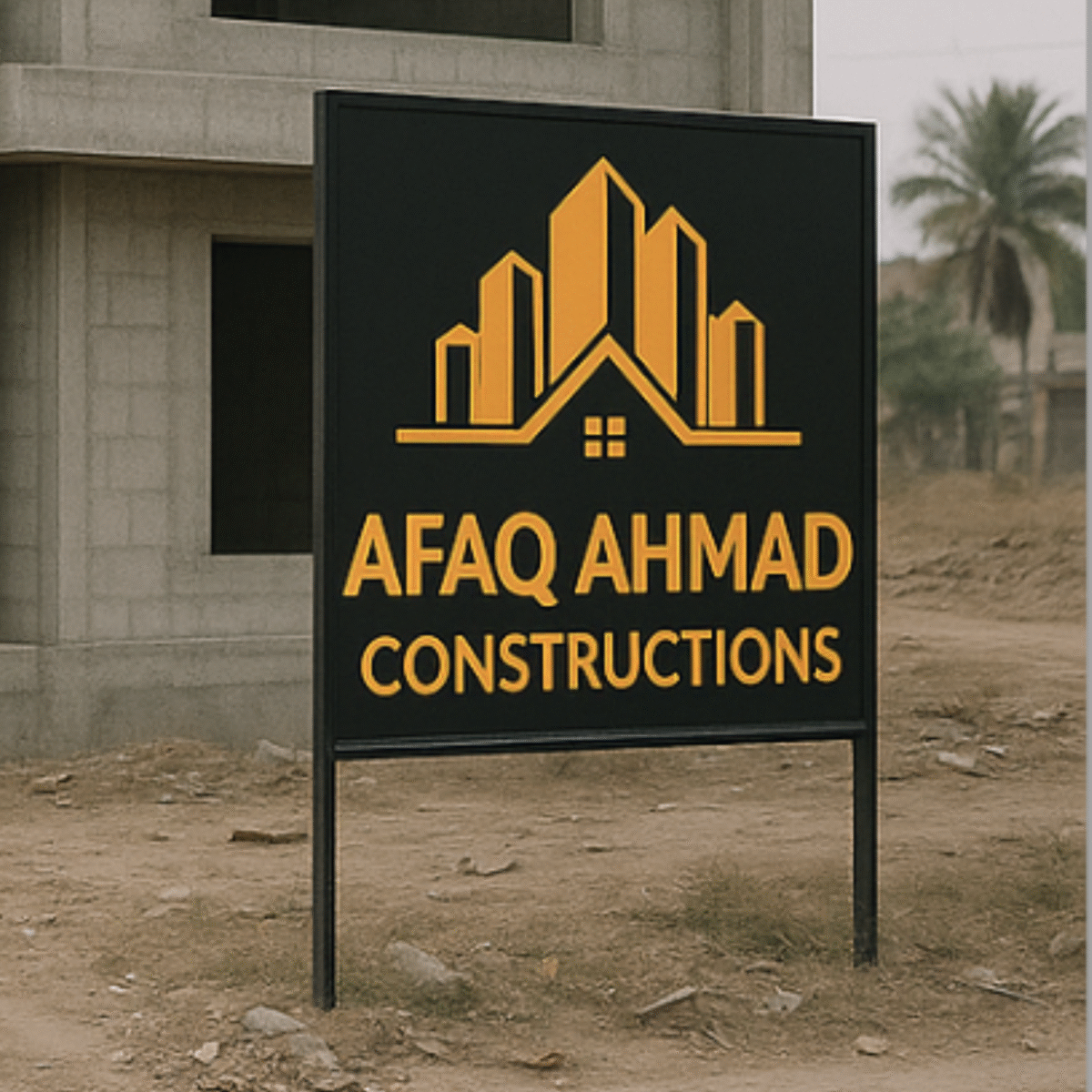
Conclusion:
Constructing a home in Pakistan in 2025 requires more than just hiring a builder. It demands proper planning, budgeting, material selection, and quality control. By following this comprehensive guide, homeowners can save time, money, and avoid many common pitfalls. Whether you’re building your first home or investing in property, make sure your construction journey is well-informed and managed by trusted professionals.





